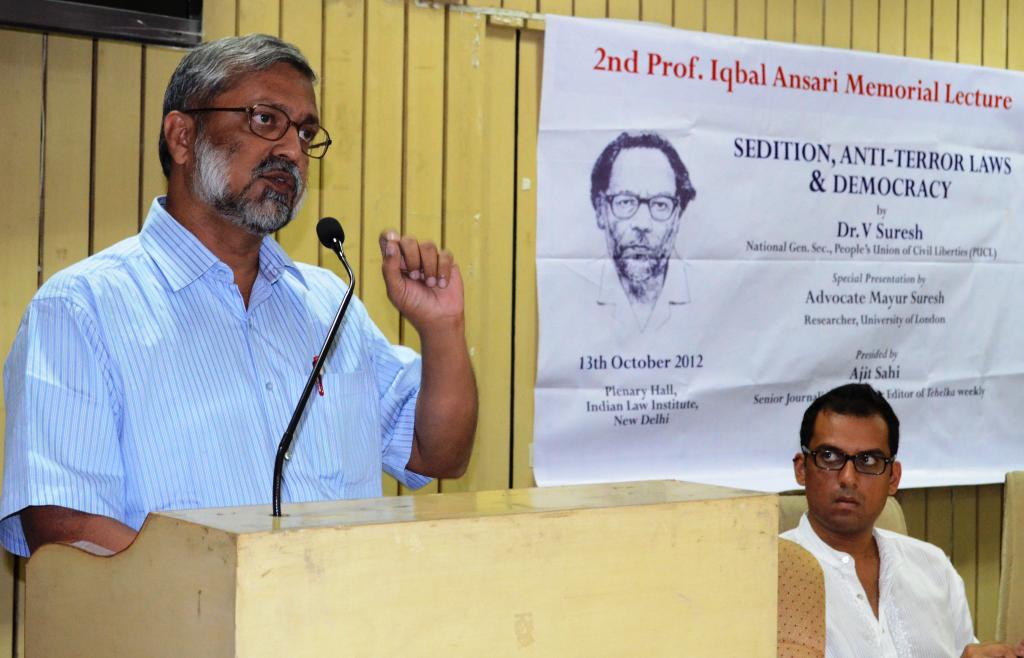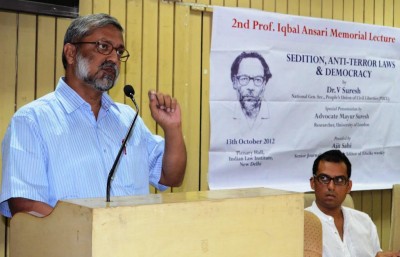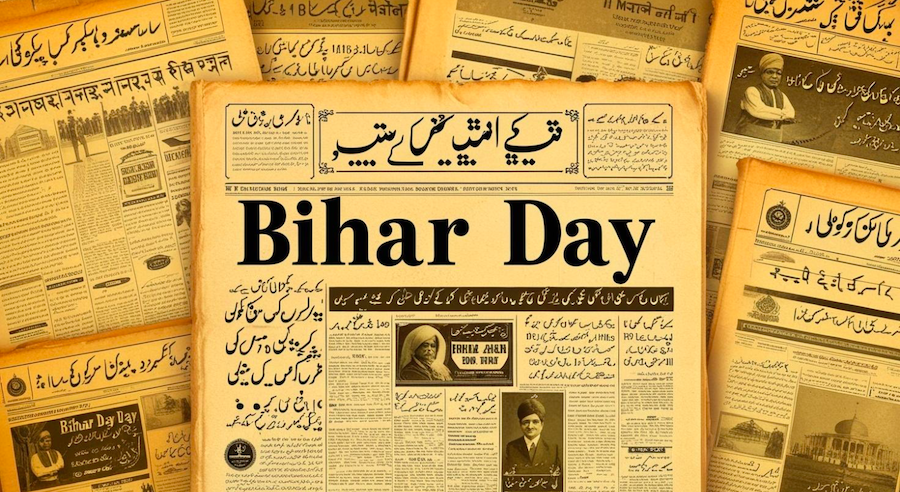BeyondHeadlines News Desk
New Delhi: The true test of human rights is its applicability in times of terror and emergency, not ordinary times, said Dr. V Suresh, National General Secretary of PUCL emphasizing the fact that Human Rights are no luxury or privilege but fundaments rights of every citizen of India. He was delivering the second Professor Iqbal Ansari Memorial Lecture on the topic of ‘Sedition, Anti Terror Laws and Democracy’, here at Indian Law Institute. In an exemplary address, he emphasized the need of studying the anti-terror law UAPA and how the government has quietly done away with whatever little safeguards which were there in the previous anti-terror laws. He gave a few interesting examples to back his claims.
He also explained how even in India there was an attempt to change the discourse on human rights wherein the State tried to ride on the insecurities of the people and tried to push a view that human rights could be brushed aside in what it termed as ‘war on terror’. Arguing for prosecution of police officials involved in framing innocents and reparation of victims, he said, “There is now ample documentation from all across the country that terror laws including the UAPA have been grossly abused to implicate people falsely in cases.”
Citing the Universal Declaration of Human Rights (UDHR), he argued, “human rights are indivisible and cannot be suspended even in times of emergency. Indeed, the experience of Holocaust and world wars had taught us that human rights needed to be protected in those periods of emergencies and wars.” “Article 3 of UDHR was crafted to prevent abuse, not in ignorance of abuse,” he added.
“The UN assembly has passed a resolution on Remedy and Reparation for Victims of Gross Violations of International Human Rights Law and Serious Violations of International Humanitarian Law, to which India is not a signatory. However, it does not stop us from approaching the courts citing this resolution. We must build a collective movement to demand that police officer in charge of investigation who handles the case from filing of FIR to its conclusion shall be held liable if the court comes to the conclusion that the case is not made out,” Dr V Suresh opined.
Earlier, Advocate Mayur Suresh, a lawyer by profession and a research fellow at the University of London, in his special presentation traced the prehistory of Section that is the colonial ‘sedition’ law and located it in the State’s fear of simple speech. He cited the famous Kedarnath Singh vs the State of Bihar Case of 1962. Mayur Suresh, emphasizing the primacy of “disaffection” in sedition made an interesting submission when he said that the idea of love is deeply implicated in the history of sedition law.
“The very same theme of corrupted love seeped into the sedition law in India. Thus TADA and POTA defined sedition not only as disaffection from the government but have expanded it to include disaffection against India itself. The state appears like a neurotic lover demanding not only love, but a constant public display of love,” Mayur explained. He argued, “Sedition law, while it may have been used to silence and suppress political dissent, is not simply a tool for that. Otherwise, it would not have been applied randomly to numerous Muslims, arrested for ‘disaffection’” adding, “if sedition means the suppression of political dissent, then why are Muslim youth being picked up randomly and booked for years together?”
Senior journalist and former Editor of Tehelka Weekly, Ajit Sahi while presiding over the lecture said, “we have won the fight against the TADA, POTA and I strongly believe in winning the fight against UAPA and Sedition” adding, “We need to be optimistic and keep out battle against the draconian laws on”. He appealed to the human rights groups and activists to come together to fight against draconian laws such as, sedition, UAPA, AFSPA in order to restore real democracy.










